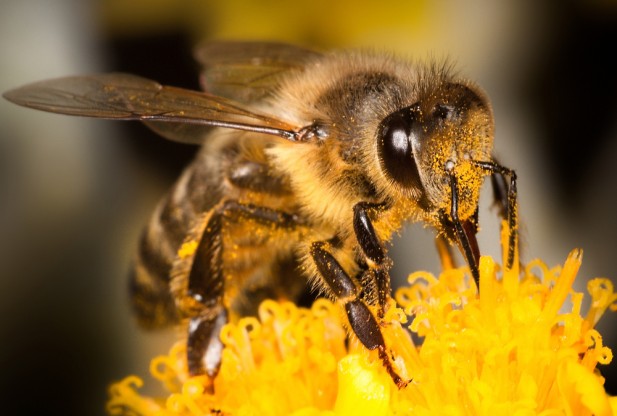Laying the foundation stone of Indian Agriculture Research Institute (IARI) at Barhi in Hazaribag, Prime Minister Narendra Modi on his speech asked farmers to “select at least one district in every state to take up apiculture. Apiculture is an essential component in integrated farming and also increases the production of honey to meet the greater demand in the world market over”.
This statement is definitely true because honeybees are an integral part of our ecosystem. They are the keystone pollinators to crop plants as well as wild plants. Majority of our agricultural pollination approximately 80% are provided by these gentle creatures on earth. Recent reports highlight the fact that lack of pollinators has caused a reduction in agriculture production.
Pollination is the first step in the formation of fruit/seed in plants. It involves the transfer of pollen from male part of flower (anther) to the female part of the flower (stigma). Approximately 25,000 different types of honeybees are responsible for pollinating our agricultural world. Honey bees visit the same flowers of a particular species at one trip thereby attain high quality of pollination. Without honey bees, pollination would not take place and crops would not develop. Okra, onion, cashew, mustard, cabbage, coconut, lemon, coffee, sunflower, rubber, cotton, tamarind etc are some of the crops pollinated by honeybees. Pollination also affects dairy industry since alpha-alpha the main ingredients in live stock feed, is dependent on honey bees for their pollination.
Honey bees provide one third of what we eat. If bees disappear from earth we will be no longer available because they would have taken most of our insect pollinated plants with them. Actually, the world’s food supply is dependent on honeybee pollination directly or indirectly. In other words, honeybees play an important role in ensuring food security to our world.
In addition to these, honeybees provide humankind with many valuable products like honey, bee wax, propolis, pollen, royal jelly, bee venom etc. It also helps in maintaining a good, attractive and aesthetic environment by promoting a better floral growth.
Now a days, the number of apiculturists are decreasing due to the loss of colonies. Indiscriminate and increasing use of insecticides, deforestation, climate change, global warming etc. have shortened the life span of honey bees and have thus reduced the number of colonies available for production of honey. Reduction in number of honey bees effectively reduces the rate of successful pollination, which in turn reduces agricultural and horticultural production. As a result, shortage of food materials and a consequent increase in the price of food will follow.
We never recognize the value of honey bees and the laborious task involved in producing honey and allied products none of which have been substituted by any other means. We can study so many things from honeybees one way or other. Honeybees do their own jobs and they are busy with their work also. This fruits of the toils of this social insect plays a great role in maintaining and managing our ecosystem.
The World celebrates National Honey Bee Day (NHBD) in August every year. In this year August 15 is celebrated as National Honey bee Day. The theme of this year is “Ban Ignorance, Not Honey bees”. NHBD is an awareness day started by beekeepers in the United States to promote beekeeping as an agriculture practise and to make people aware about bee keeping worldwide.
Beekeeping is a comparatively small industry, but it plays a significant role within the agricultural area. Outcomes of beekeeping: 1) Enhances crop productivity through pollination. 2) It generates a large income for unemployed youth, which can be started with minimal funds and an income generating hobby for school and college students. 3) It generates an additional employment and income for those already in employment. 4) It gives enjoyment. 5) Helps in rural development and encourage small village industry.
To follow PM’s words let us culture honeybees by maintaining one apiary in each home or at least encourage farmers for beekeeping. Also, planting more bee-friendly plants and also reduce the use of pesticides in our area. Let us make honeybees our model - do a small job and make a better world.
Both the bees and plants can’t survive without each other. In fact we can’t live without bees. So give honeybees a chance: “Save the Honeybees Save the Earth.”.
Quoting Albert Einstein’s words here: “If the bees disappeared off the surface of the globe, then man would have only four years of life left. No more bees, No more pollination, No more plants, No more animals, No more man”.
